I’m super excited about today’s interview! I am turning Soul Speak over to my amazing husband, Dan. He sat down with Scott Blum and had a soulful chat – they talked about Scott’s newest book, Winter Moon Rises, spirituality, being a dad, and so much more! So without further ado… enjoy!
About seven years ago, while Jodi and I were living in the red-rock mountains of Jemez Pueblo, New Mexico, she subscribed to a website called DailyOM (one of the world’s most popular non-denominational inspirational websites, with over 1.2 million subscribers). The site’s inspiring posts, eerily on-the-money horoscopes, and motivational e-courses became a regular source of inspiration and conversation in our home.
Several years and several moves later, we found ourselves living in southern Oregon, only twenty minutes away from the site’s co-founders, husband-and-wife team Madisyn Taylor and Scott Blum. We have been blessed to meet and spend some time with these two wonderful people over the past couple of years. They have truly opened their hearts to us—helping us with our business, featuring several of our journals on their site, showing us an early cut of Scott’s first movie, and sharing their wisdom and encouragement as we follow our own similar but unique paths.
Last week I had the pleasure of meeting with Scott at the DailyOM office in Ashland, OR, to discuss his most recent book, Winter Moon Rises, the third installment in a trilogy that also includes the Amazon bestsellers Waiting for Autumn and Summer’s Path (which was adapted into the feature film Walk-In, which Scott also wrote and directed).
Winter Moon Rises (the Hay House Book Club’s pick of the month for November) follows Scott and Madisyn on their journey of bringing their first child into the world, including numerous physical, emotional, and spiritual challenges, lessons, and blessings. The semiautobiographical novel touches upon issues ranging from gender roles and parenthood to Native American ancestral healing rituals and the souls of unborn children; yet it is written with down-to-earth grit, humor, and compassion, seamlessly weaving together the natural and supernatural into a single, compelling narrative.
I am so grateful to Scott to sharing his words and his spirit with all of us, and so pleased to be able to share our conversation with you.
How did writing Winter Moon Rises compare to writing the previous two books in the series?
The other two books came to me as more of a download. They came to me fully formed in a matter of two or three seconds, and I was just there and just sort of wrote it down. This book was a little different because I knew I was living it at the time. There were occasions—like when I walked into the tipi—when I said, “Wow, I think I’m living a chapter in my book right now.” And so it was kind of a challenge to remain present but also take mental notes. But toward the end I didn’t really have the two different mindsets. I was just present and reflected on it later.
Even though it’s technically “fiction,” it’s such an intensely personal book. Did you have any reservations or second thoughts, or did it come naturally to be so open and honest?
I wanted to be as honest as I could. That was my overall goal with this book. I wasn’t trying to be as protective—especially protecting myself—as in those other two books. In fact, I think that’s one of the reasons why I rewrote Summer’s Path three times. At first it came out as a digital book, and then I rewrote it again for the hardcover and then rewrote it again for the movie. It’s because there were so many different layers of feelings and emotions that I buried under different concepts. I tried to remove that as much as possible with every draft. But for this one, from the very beginning I just said, “This is only going to work if I’m 100% open and honest.” So that was the intention.
With each revision of Summer’s Path you felt like you were protecting yourself less?
Yeah, I was trying to pull off the layers. And, in the case of the hardcover, I did that by adding some chapters that were conspicuously absent, that I sort of short-cutted. And for the movie—and I guess this is where my heart is now—I tried to remove the dichotomy between the spiritual life and an Earth-based life. That’s what I’m trying to do more and more—to remove that line, so that it’s just life, and it happens to be infused by these things, as opposed to being, “This is the lesson, and this is the ‘normal’ part”—really just have it be one thing.
That’s interesting, because that’s one of the questions I wanted to ask: How do you balance spiritual life and everyday life, or is it all just one thing?
I used to try to balance it. Now I simply try to integrate it so that it’s one thing. That’s something I’ve been consciously doing for quite some time. When we were down in L.A., we would spend all of our spare time meditating and doing yoga. I would commute 45 minutes each way to my job in the music industry, and then as soon as I got back, I’d meditate in order to deal with the craziness of the city. That was one of the main reasons why we started DailyOM—because we wanted to integrate our professional life with our spiritual life.
You wanted to connect the two—rather than have this dichotomy of having a crazy, hectic work-life, so you could afford to go home and meditate?
Yeah, that was the goal—to integrate it. And I took that more on a personal level when we moved here [Ashland, OR]—treating every moment as a sort of walking meditation, and not really keeping those as separate concepts. It’s so much easier to do it in a smaller town than it is in a bigger city, because crazy people flipping you off on the freeway is definitely going to take you out of that, and there aren’t as many people flipping you off at the co-op.
It is good to stay quiet and go within occasionally, but it’s not as much at the core of being balanced as it used to be for me. Now it’s just another tool, like walking or using a calculator. So I just use those tools when I need to.
In this book and in the past, you’ve written a lot about ritual. How important is ritual to you, and how do think it’s important for other people and to our culture and society in general?
The reason for ritual in general is to connect yourself with something bigger than yourself. I think that’s incredibly important nowadays, especially with the internet and the kind of micro-niche that we’ve developed where we can insulate ourselves with just what we want to know. So I think it’s even more important to be conscious of connecting ourselves with others, because it’s so easy not to in today’s day and age.
In general, most of us start our spiritual journey in order to heal ourselves, and then the next thing that we do is begin to heal our friends and our family, and then, once we start to realize that there’s a spiritual evolution of our souls collectively, we begin to draw from the strength of all that have gone before us. It’s almost like an energetic support system—we have all of this energetic wisdom that we’re meant to draw from.
However, there are times when that energetic wisdom is blocked because of an ancestral entanglement of some sort or another. It could be because a past relative did something very wrong—like murdered somebody or something like that—and they’re eventually written out of our family history, because our ancestors don’t want to have that kind of negative energy in our family line. But that’s actually a detriment because, although they might have done something wrong, they are also a part of a soul link—like a chain link—that we all need to acknowledge and honor everyone that’s within our family line. So one of the ways of helping that is through ancestral healing.
Ritual is a very important part of ancestral healing because if you can embrace the rituals of your ancestors, that’s a way of bringing them into your circle and acknowledging them. For me, I’m finding that connecting to my ancestors through Native American rituals—because I have Native American ancestry—has been helpful, especially because, in my case, I’m the one who’s been disconnected from my family line—through adoption, as well as through society and my own personal choices. So being able to connect with that is kind of the ultimate reason—because then you can start healing your own family line, to free up that energetic connection between you and your ancestors and ultimately, when you’re bringing a child into the world, pave the way and help future generations so you’re not the one that’s blocking the energetic evolution for them.
It sounds like when you realized that you wanted to bring a child into the world that it was a big impetus for you to get in touch with your own ancestry—and with yourself. I especially like the moment in the book where you say that you weren’t sure if you were ready to be a father because you had so many childhood issues. So it seemed like the prospect of fatherhood really lit a fire under you to get more clear yourself.
Yeah, I think so. You know how when people die they say that their life flashes before their eyes in the few seconds before they go? I felt the same way with bringing a child into the world, but instead of having my entire life flash in front of my eyes in a few seconds, my entire childhood flashed before my eyes in slow-motion for nine months. It was like everything that happened to me from birth to adolescence was highlighted and magnified with a big question-mark underneath it, which was, “So, okay, are you ready to deal with somebody else going through these issues, and how are you going to offer anything meaningful when somebody else is going through these things?”
In a way, that must’ve been a blessing—to revisit your childhood from an adult perspective. Are you continuing that process now, or has it shifted?
It continues, but it definitely shifted when Oliver was born. Now I’m actually having to not just think about it but actually react and hopefully help. It’s not hypothetical anymore.
Do you see him already, at his young age, starting to experience some things that you can remember?
Oh yeah. Just human things, like want and sharing and dealing with anger and fitting into society and coming into a body and the limitations of the physical…all kinds of things. It’s constant.
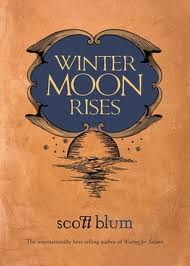 A lot of the issues you write about in Winter Moon Rises concern masculinity and your own role as a man. How has it been having a son as opposed to a daughter?
A lot of the issues you write about in Winter Moon Rises concern masculinity and your own role as a man. How has it been having a son as opposed to a daughter?
It’s great! As soon as he was born, within half a second, all those fears were completely over.
You’re feeling more comfortable with masculine energy as well as feminine energy?
Yeah. Because I grew up in the center of the feminist movement, I really took that whole equality thing to heart, that we’re all kind of the same. I still believe that in many ways, but it wasn’t until Madisyn was pregnant that I realized that the genders aren’t the same. She was quite clearly carrying the child and I wasn’t, and I had to acknowledge that. Although I knew that intellectually before, I didn’t really feel it until it happened to me.
That’s a good point: that equality doesn’t mean you’re the same. You can have different talents or focuses or abilities—like physically bearing a child—and it doesn’t mean that one’s better than the other.
Absolutely. Also, another turning point was the conversation with Andrew [Harvey, as recounted in Winter Moon Rises]—realizing that the war between the genders had already been won and that this was the next phase—to bring the next generation of men into the world. And, ultimately, the goal isn’t for a single gender to dominate, which had previously happened in some ways, but to wed them both in a sacred marriage—not only amongst the genders but also within ourselves and, ultimately, within the entire universe.
What would you say to people—and especially to men—who want to move beyond the past and live a spiritual, positive, integrated life?
You need to look within yourself and not subvert the energies that are coming up within you, whether they be masculine-type energies, which may be a little more forceful, or the more sensitive sides—not to ignore either side. I think that we in the spiritual community have gone kind of overboard with trying to embrace the sensitive side and trying to subvert the masculine urges and tendencies that we have, but in actuality both of those are extremely helpful in all of us.
It sounds like you’re encouraging people to do inside themselves what you’re saying is important to do for your whole ancestry: rather than trying to push down certain parts, to embrace it all and let it come out naturally.
Yeah. I would say try to be as honest as you can and live as authentically to whatever is calling you. And I think that that extends in some ways to the overall evolution of the planet as well, where we’ve had a sort of direction that, as a planet, we’ve been moving toward—science and technology and these sorts of evolutions happening over the years…
…and now do you see the pendulum swinging back in a more spiritual direction?
Yeah, I do. I think it’s been going on for a decade and will continue to go on.
Do you think we’re building up to some sort of culmination?
I think that because there are enough people that believe it that probably something energetically will happen, that we’re actually marking the beginning of the next phase. I don’t think it would happen without all of that energy, but I think having many people have a similar intention on a similar date is definitely healing. The dates have been different for different people. If you look at it one way, the official end of the Mayan calendar was just a few weeks ago, and then a lot of people had 11/11/11 as something that was very intense, and then next year, 12/21/12, a lot of people think that’s the date. But just the fact that we all kind of agree that this decade is important is good enough for me.
So, what’s next for you? Any new creative projects, or is it a constant process of writing?
The big thing that I’m working on now is wrapping up my movie—moving out of the production phase of that and into the promotion. That’s going to take a little bit longer.
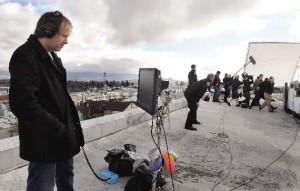 You were talking about entering it into film festivals?
You were talking about entering it into film festivals?
Yeah. We’ve entered it into several film festivals, and we should start hearing back shortly. Basically, the goal is to do a limited theatrical run with the festivals starting early next year and then, depending on the response at the festivals, either secure a wider theatrical release or after that move to DVD and digital toward the middle to end of next year. It takes awhile to do, but I really enjoyed making the movie. That’s what I’m looking to do now. I think my next writing project might be going directly to film.
Do you have something in mind?
Yeah, I do. I’m currently working on something that might not be as overtly spiritual as my previous books. And, like I said, I think it might be because I want to integrate that type of stuff so that it’s infused but not explicit. We’ll see. It’s a little bit early to talk about.
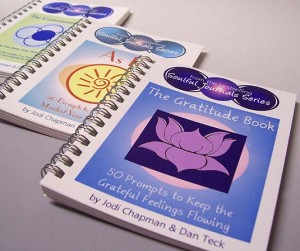 In these interviews, we always ask three questions from our Soulful Journals. The first one I wanted to ask is from our I Am Grateful For… journal—just asking what you’re grateful for, either now or in the past.
In these interviews, we always ask three questions from our Soulful Journals. The first one I wanted to ask is from our I Am Grateful For… journal—just asking what you’re grateful for, either now or in the past.
I’m grateful that I was able to have the experience of bringing a child into the world.
It definitely sounds like that was transformative for you.
Absolutely.
The next question is from Journaling Further Within: If you could wave a magic wand over one person’s life, who would you choose, and how would you help them?
It would have to be my son. I would just try to leave as much wisdom as I could from everything that I’ve learned and hopefully pave the way and clear the path so that he can acquire wisdom in his day-to-day life.
Sounds like you’re already doing that—with or without the wand!
I hope so.
Finally, I wanted to ask a question from Transitions: When have you felt the most alive?
I think that the moment of first holding Oliver was definitely high up on that list because I truly did feel in some ways like I was on a precipice looking into the future for the first time in my life, and really seeing the continuum of the future and the past meeting in one particular moment.
***
Scott Blum is the co-founder of the popular inspirational website, DailyOM. He is also a successful multimedia artist who has collaborated with many popular authors, musicians, and visual artists and has produced many critically acclaimed works, including a series featuring ancient meditation music from around the world. Scott lives in the mountains of Ashland, Oregon with Madisyn Taylor—his wife, business partner, and soul mate. For more information, please visit www.scottblum.net.
Dan Teck is Jodi Chapman’s loving husband and business partner. They are co-founders of This Is It! Creations and co-authors of the Soulful Journals series. Dan is also a novelist and screenwriter, as well as the author of the upcoming book, Make It Real: The Manifestation Workbook. He and Jodi live in Medford, Oregon. For more information, please visit www.soulfuljournals.com.
***
Thank you both for this wonderful interview! It’s such an honor to share this space with two beautiful souls. ♥

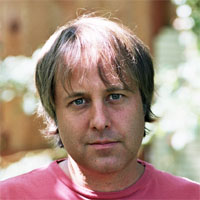
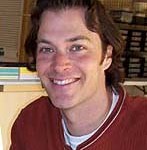

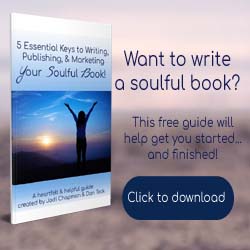

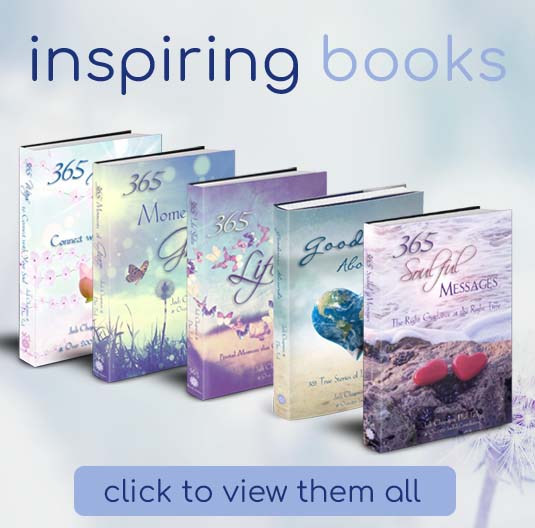
This is an amazing interview, Dan, so well done – bravo! Scott’s reflections about fatherhood and how his childhood replayed in slow motion during his wife’s pregnancy especially touched my heart.
Thank you so much for sharing this!
Love,
Alice
Great post. Little Oliver has one very devoted daddy.